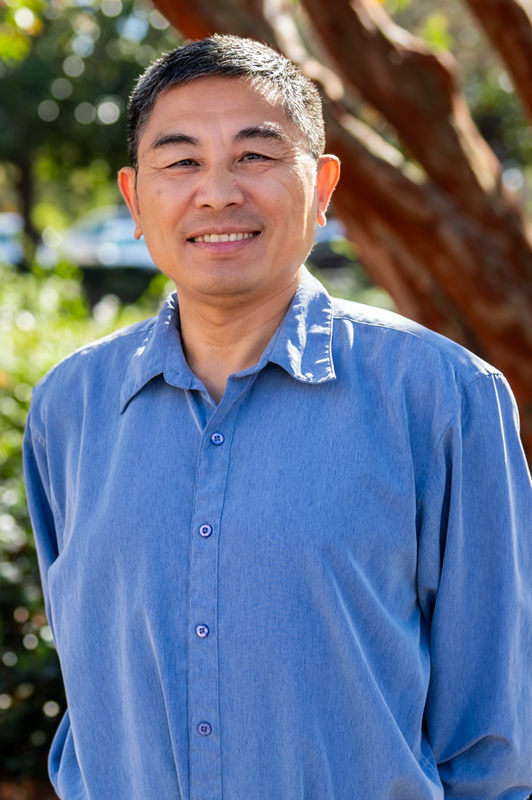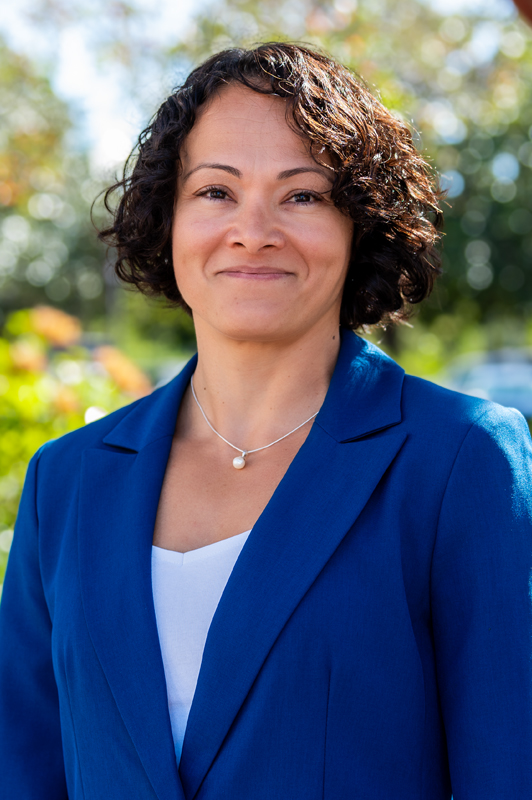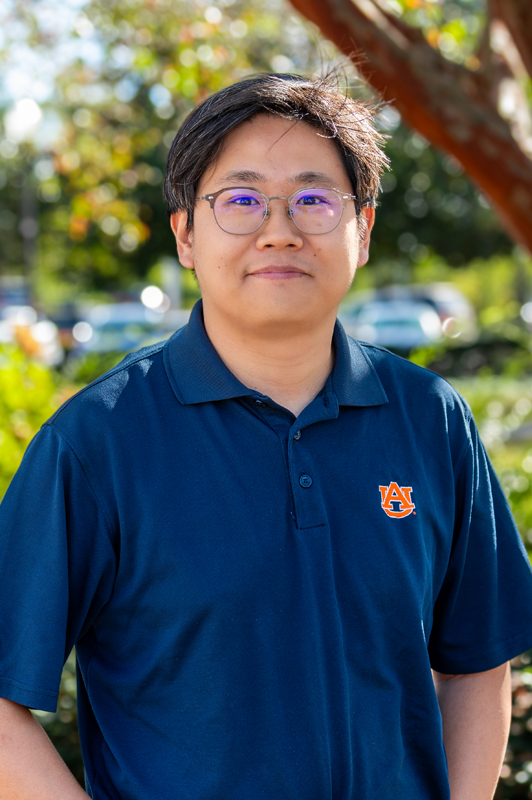Multi-disciplinary research team conducting $1.88 million DOE study to reduce carbon dioxide emissions
Published: Nov 22, 2024 3:00 PM
By Joe McAdory
Zhihua Jiang, the Auburn Pulp and Paper Foundation Associate Professor of Chemical Engineering and director of the Alabama Center for Paper and Bioresource Engineering, is the principal investigator on a $1.88 million U.S. Department of Energy (DOE) project designed to develop a process for the conversion of carbon dioxide to polyethylene using flue gas from the pulp and paper industry.
Researchers will produce low-cost biocarbon from paper mill sludge and produce ethylene, which will replace petroleum-based ethylene to synthesize polyethylene.
“This is very important because if we do not convert the carbon dioxide, it will become a greenhouse gas,” said Jiang, “Our proposed process has the potential to achieve at least a 90% decrease in carbon dioxide emissions from the pulp and paper mill lime kiln.”
Jiang is joined on the project by co-PIs Selen Cremaschi, Department of Chemical Engineering chair, Tae-Sik-Oh, associate professor in chemical engineering and Yucheng Peng, assistant professor in the College of Forestry, Wildlife and Environment. Co-PIs at other institutions include Feng Jiao from Washington University in St. Louis, Bill Jin from Michigan State University and Mark Feng from Polykala Technologies in Pasco, Washington. Industrial partners include the Auburn Pulp and Paper Foundation and Yates Engineering.
Jiang said researchers will evaluate and optimize thermal-chemical reaction parameters using a Joule heating reactor to convert carbon dioxide into carbon monoxide by reacting it with biocarbon. They will also develop an electrolyzer to selectively reduce carbon monoxide formed into ethylene, then produce and evaluate high-density polyethylene from the ethylene.
“It is not trivial to convert carbon dioxide to other useful chemicals electrochemically, so we chose to convert carbon dioxide to carbon monoxide first before we feed the gas to our electrochemical reactors,” said Oh, a KIChE President Young Investigator Award recipient this past summer. “This conversion relies on reverse Boudouard reaction. This reaction is not new, but we will demonstrate catalyst particles that can handle real-world waste from the pulp and paper industry.”
Cremaschi will work on the simulation of carbon dioxide to ethylene conversion process and optimize the process from an economical and environmental perspective using techno-economical and life cycle analysis.
“Our analysis will assess the profitability and environmental impacts of different designs considering the entire process, ensuring that we can produce ethylene profitably with minimum negative environmental impacts,” said Cremaschi, who is collaborating with Jiang as co-PIs on a $23.8 million DOE project, “Timberlands Sequestration – A Biomass Carbon Dioxide Capture and Removal Project at a Pulp Mill in Alabama.”
Peng, who specializes in biocarbon manufacturing and characterization, heavy metal ion adsorption by biocarbon, lignocellulosic materials-based polymer composites processing and characterization and plastic packaging recycling, will help the team screen the commercially available biocarbon used in this research and manufacture the low-cost biocarbon from pulp mill sludge and other forest biomass.
“I will also help evaluate the critical biocarbon characteristics for converting carbon dioxide to carbon monoxide in the proposed technology,” Peng said. “The essential biocarbon manufacturing feedstocks and practices will also be configured.”
Using his laboratory capabilities, Peng will also help characterize the properties of high-density polyethylene produced in the project.
Auburn’s role is part of a larger DOE Office of Fossil Energy and Carbon Management initiative focusing on technologies that utilize carbon dioxide from industrial and power generation facilities and emissions captured directly from the atmosphere.
Jiang believes that Auburn Engineering’s reputation helped secure funding for the project.
“This is a very competitive program as many researchers submitted applications,” he said. “Knowing that researchers here at Auburn have an outstanding reputation is a very good feeling, but this isn’t our first DOE project.”
Jiang credited the Auburn Pulp and Paper Foundation for its continued support of the Alabama Center for Paper and Bioresource Engineering.
“This is another one of the projects that’s supported by the Foundation,” he said. “We are always very thankful for the Foundation’s support as they have provided us with opportunities to enhance our laboratories for research and helped provide students with scholarship assistance, which ultimately lead to long careers in the pulp and paper industry.”
Media Contact: , jem0040@auburn.edu, 334.844.3447
Zhihua Jiang is director of the Alabama Center for Paper and Bioresource Engineering.




